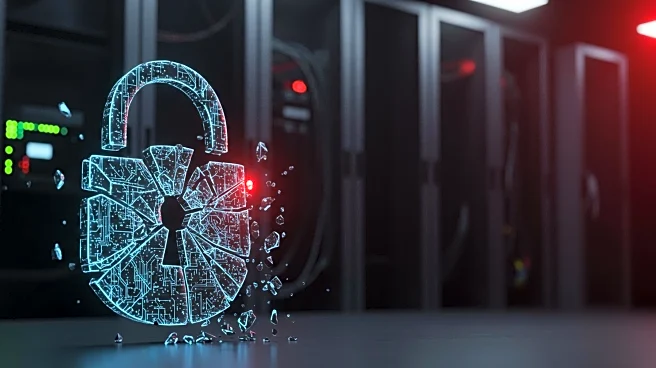What's Happening?
Manpower, a staffing and recruiting firm based in Lansing, Michigan, has reported a data breach affecting approximately 140,000 individuals due to a ransomware attack. The breach was discovered during an investigation into an IT outage that occurred on January 20, 2025. Hackers accessed Manpower's network between December 29, 2024, and January 12, 2025, stealing files containing personal information. The RansomHub ransomware group claimed responsibility, listing Manpower on its leak site and alleging the theft of 500 Gb of data, including HR, financial, marketing, and other corporate documents. Impacted individuals are being offered free credit monitoring and identity theft protection services.
Why It's Important?
The breach highlights the vulnerability of businesses to ransomware attacks and the significant impact on individuals whose personal information is compromised. Such incidents underscore the importance of robust cybersecurity measures and prompt response strategies to mitigate damage. The breach could lead to financial losses, reputational damage, and legal consequences for Manpower, emphasizing the need for companies to invest in cybersecurity infrastructure and employee training. The incident also raises concerns about the effectiveness of traditional security perimeters against sophisticated, socially-engineered threats.
What's Next?
Manpower is likely to face increased scrutiny from regulatory bodies and affected individuals, potentially leading to legal action and financial penalties. The company must enhance its cybersecurity protocols to prevent future breaches and restore trust among clients and stakeholders. The broader industry may see a push for improved cybersecurity standards and increased adoption of advanced threat detection technologies. As ransomware groups evolve, businesses must remain vigilant and proactive in their cybersecurity efforts to protect sensitive data and maintain operational integrity.
Beyond the Headlines
The breach reflects broader trends in cybersecurity, where ransomware attacks are becoming more targeted and sophisticated. The incident serves as a reminder of the ethical responsibility companies have to protect personal data and the potential consequences of failing to do so. The integration of AI and machine learning in cybersecurity could offer new solutions for threat detection and response, helping businesses stay ahead of evolving cyber threats. The incident also highlights the importance of collaboration between industry stakeholders to share insights and develop effective defense strategies.











